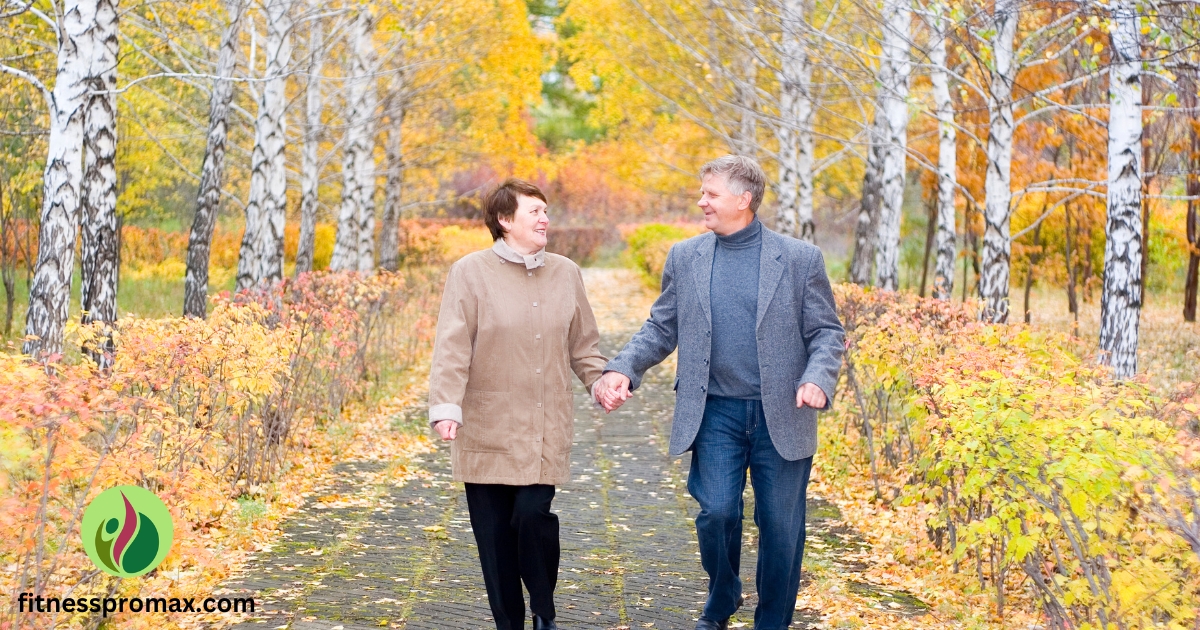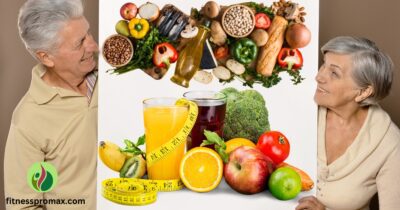A healthy nutritious diet can play a significant role in helping to fight age-related bodily changes.

Here are a few specific ways that a good diet can help to fight these changes:
Antioxidants: Eating a diet rich in antioxidants can help to protect the body against the damaging effects of free radicals, which can contribute to the aging process. Foods that are high in antioxidants include berries, leafy green vegetables, nuts, and whole grains.
Anti-inflammatory foods: Inflammation is a normal bodily response, but chronic inflammation can contribute to the aging process. Eating a diet that’s high in anti-inflammatory foods, such as fatty fish, turmeric, ginger, and green leafy vegetables, can help to reduce inflammation in the body and fight age related bodily changes.
Healthy fats: Healthy fats, such as those found in avocados, olive oil, nuts, and seeds, can help to support the health of cell membranes, which can be beneficial for maintaining a healthy aging process.
Fiber: Eating a nutritious diet high in fiber can help to support a healthy gut microbiome, which can be beneficial for overall health.
Hydration: Drinking enough water is crucial to help our body function properly, as we age, our body’s ability to retain water decreases, which increases the risk of dehydration. Drinking enough water can help to support cardiovascular health, skin health, and cognitive function.
It is important to note that a balanced diet containing all the macronutrients and micronutrients, and not only focusing on specific nutrient or food groups, is key to maintain overall health as we age. It is also important to note that the best diet is one that is tailored to the individual and incorporates a variety of nutrient-dense foods.
What causes the main physical changes during old age?
There are many physical changes that occur during old age, and they can be caused by a combination of factors, including genetics, lifestyle choices, and the natural aging process. Here are some of the main physical changes that occur during old age:

Decline in muscle mass and strength: As we age, our muscles naturally begin to shrink and lose strength, a condition known as sarcopenia. This can make it more difficult to perform everyday activities and can increase the risk of falls and injuries.
Changes in bone density: With age, our bones become more fragile and are more prone to fractures. This is due to a decline in bone density, a condition known as osteopenia or osteoporosis.
Decline in cardiovascular health: The heart and blood vessels can also undergo changes during old age, including stiffening of the arteries and a decline in cardiac function.
Changes in the immune system: The immune system also changes with age, leading to a decline in its ability to fight off infections and diseases.
Decrease in cognitive function: The brain and cognitive function also change with age. Changes in the brain can lead to a decline in cognitive function, such as memory loss and difficulty with reasoning and problem solving.
Skin and hair changes: The skin becomes thinner and less elastic with age. Wrinkles, age spots, and dryness are common skin problems. hair thins and loses color.
Changes in vision and hearing: As we age, our eyes and ears may also undergo changes, leading to a decline in vision and hearing.
Changes in sleep patterns: As we age, our sleep patterns can also change, leading to difficulty falling asleep and staying asleep, as well as increased risk of sleep disorders such as insomnia and sleep apnea.
It’s important to note that not all individuals experience all these changes, and some may experience them differently, some may experience them more severely, some may not experience them at all. While some of these changes are a natural part of aging, many can be influenced by genetics and lifestyle choices such as diet and exercise, so maintaining a healthy lifestyle can help to minimize these changes.
Focus on Healthy Nutritious Diet to Combat Aging Problems

As we age, our bodies undergo a variety of changes that can affect our overall health and well-being. Many of these changes can be influenced by our diet and lifestyle choices. Here are a few ways that you can use your diet to combat age-related bodily changes:
Maintain muscle mass: As we age, we naturally lose muscle mass, which can make us more susceptible to falls and injuries. Eating a diet that’s high in protein can help to maintain muscle mass, especially as we get older. Good sources of protein include lean meats, fish, eggs, and legumes.
Boost bone health: With age, our bones become more fragile, which can increase the risk of osteoporosis and fractures. Eating a nutritious diet that’s high in calcium and Vitamin D can help to boost bone health. Good sources of calcium include milk, yogurt, and leafy green vegetables, while good sources of Vitamin D include fatty fish, eggs, and fortified milk.
Support cardiovascular health: As we age, our cardiovascular health can decline, which can increase the risk of heart disease and stroke. Eating a diet that’s high in fruits, vegetables, whole grains, and lean proteins, and low in saturated fats and added sugars can help to support cardiovascular health.
Boost cognitive function: As we age, our cognitive function can decline, which can increase the risk of dementia and other age-related cognitive disorders. Eating a diet that’s high in fruits, vegetables, whole grains, and lean proteins, and low in saturated fats and added sugars can help to support cognitive health and may also reduce the risk of developing cognitive decline.
Maintaining a healthy weight : As we age, it can be harder to maintain a healthy weight, and carrying excess weight can increase the risk of a variety of health problems. Eating a balanced nutritious diet and staying physically active can help to maintain a healthy weight and reduce the risk of age-related health problems.
It’s important to note that a balanced diet is key to combat age-related bodily changes, it is not recommended to focus on specific nutrient or food groups excessively. Also, a healthy lifestyle, including regular physical activity and stress management, along with a balanced diet, can maximize the benefit of diet to support overall health as we age.
It’s also important to listen to your body and notice how it reacts to drinking green juice. If you feel any negative side effects, you may want to speak with a healthcare professional to determine if it’s safe for you to continue consuming green juice on an empty stomach.
Pregnant and breastfeeding women: Pregnant and breastfeeding women should consult with their doctor before consuming green juice to make sure they are getting enough of the vitamins and minerals they need during this important time.
That being said, drinking green juice can be a great way to increase your intake of vitamins and minerals, but always keep in mind to balance it with a well-rounded diet including variety of fruits, vegetables, proteins and other macronutrients.
Does a healthy diet help aging?
A healthy nutritious diet can play an important role in helping to promote healthy aging. Eating a well-balanced diet that is high in nutrients and low in processed and unhealthy foods can help to reduce the risk of age-related chronic diseases such as heart disease, stroke, type 2 diabetes, and some types of cancer.
 A diet rich in fruits, vegetables, whole grains, and lean protein can provide the body with essential vitamins, minerals, and antioxidants that are needed to support overall health as we age. These nutrients can help to protect against cellular damage, support bone health, and improve cardiovascular health.
A diet rich in fruits, vegetables, whole grains, and lean protein can provide the body with essential vitamins, minerals, and antioxidants that are needed to support overall health as we age. These nutrients can help to protect against cellular damage, support bone health, and improve cardiovascular health.
In addition to providing essential nutrients, a healthy diet can also help to promote a healthy body weight and support a healthy gut microbiome, which can be beneficial for overall health.
Eating a balanced diet can also have an effect on cognitive function, research suggest that diets high in fruits, vegetables, and fish, and low in processed foods, sugar, and saturated fat can help to reduce the risk of cognitive decline and dementia.
It’s important to note that while a healthy diet can help promote healthy aging, it’s just one component of a healthy lifestyle. Regular physical activity and stress management are also crucial for maintaining overall health and well-being as we age. It is always important to work with healthcare professional or nutritionist to design a personalized diet plan that meet individual’s specific needs and preferences.
What foods are good for anti-aging?
There are many foods that have been shown to have anti-aging properties. Here are a few examples:
 Berries: Berries such as blueberries, raspberries, and strawberries are high in antioxidants, which can help to protect the body against the damaging effects of free radicals.
Berries: Berries such as blueberries, raspberries, and strawberries are high in antioxidants, which can help to protect the body against the damaging effects of free radicals.
Leafy greens: Leafy greens such as spinach, kale, and broccoli are high in antioxidants and anti-inflammatory compounds, which can help to protect the body against aging and disease.
Fish: Fish such as salmon, tuna, and sardines are high in omega-3 fatty acids, which can help to promote heart health, reduce inflammation, and protect the brain against age-related decline.
Nuts and seeds: Nuts and seeds such as almonds, chia seeds, and flaxseeds are high in healthy fats, fiber, and antioxidants, which can help to support overall health and well-being.
Tomatoes: Tomatoes are rich in lycopene, an antioxidant that can help to protect the skin against sun damage and may also have anti-inflammatory properties.
Garlic, Onions and leeks: these foods contain compounds that have anti-inflammatory and antioxidant properties and may help to lower the risk of certain cancers.
Turmeric and ginger: both ginger and turmeric are anti-inflammatory, antioxidant and can have positive effects on overall health.
Dark Chocolate: Dark chocolate (with a high percentage of cocoa) contains flavanols, which have anti-inflammatory and antioxidant properties.
It’s important to note that while incorporating these foods into your nutritious diet can have anti-aging benefits, it’s best to enjoy them as part of a balanced diet along with regular physical activity and stress management. As always, it is best to consult with a healthcare professional before making any major changes to your diet.
Also Read : Potatoes Can Help You Lose Weight : 10 Days Challenge
We are devoted to helping our community to be fit and healthy. We generally prescribe conversing with your primary care physician to decide on an actual diet plan that is ideal for you.

Fantastic site Lots of helpful information here I am sending it to some friends ans additionally sharing in delicious And of course thanks for your effort
Thank you I have just been searching for information approximately this topic for a while and yours is the best I have found out so far However what in regards to the bottom line Are you certain concerning the supply
Attractive section of content I just stumbled upon your blog and in accession capital to assert that I get actually enjoyed account your blog posts Anyway I will be subscribing to your augment and even I achievement you access consistently fast
Nice Work, Nice Website, Also Visit My Website and Please Support With Us. i you will give me back link i will give you backlink
Your hard work is appreciated; thank you for the excellent material.
Awesome post.
I really enjoy reading your website; it’s full of interesting things. Thank you for planting the seeds of knowledge. I hope that you have a harvest of success and continued wealth.